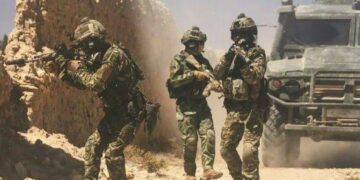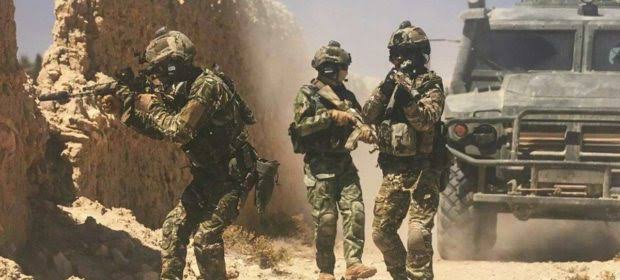By John Ikani
More than a dozen Western allies have condemned what they say is the deployment of Russian mercenaries from the Russian Wagner Group in Mali.
In a joint statement on Thursday, the 15 countries – including Canada, Germany and the United Kingdom – said the development could “further deteriorate the security situation in West Africa”, which is battling Jihadist groups.
The western powers also accused Russia of providing material support in the deployment of mercenaries from the Wagner group.
Russia denies any Government links with the shadowy private military company.
The EU has recently imposed sanctions on the Wagner group, accusing it of involvement in serious human rights abuses.
The notoriously secretive group was first identified in 2014 when it was backing pro-Russian separatists in the conflict in eastern Ukraine. Since then, it has been involved in countries including Syria, Mozambique, Sudan, Libya and the Central African Republic.
Mali’s Government has not commented on the latest developments.
“We are seeing repeated air rotations with military transport planes belonging to the Russian army and installations at Bamako airport to allow the arrival of a significant number of mercenaries,” a French Government source, who asked not to be named, told AFP news agency.
The source also said there had been frequent visits by Wagner executives to Bamako and the activities by Russian geologists known for their association with Wagner.
The other countries to have co-signed Thursday’s statement were Belgium, Czech Republic, Denmark, Estonia, Italy, Lithuania, Netherlands, Norway, Portugal, Romania and Sweden.
The United States was not a signatory but Secretary of State Antony Blinken last week warned Mali not to accept Wagner mercenaries, saying a deal would divert needed funds and further destabilise the country.
Experts have said a deal between Mali’s military-led government and the private security firm to hire mercenaries would increase Moscow’s influence while undermining French-led operations against armed groups operating in the country and the wider Sahel region.
In case you missed it
In July, President Emmanuel Macron announced a drawdown of French troops in the Sahel region by early 2022.
French troops have been present in Mali since 2013, when they intervened to force out armed fighters from power in the country’s north. That operation was later extended to other countries in an effort to stabilise the broader Sahel region that includes Chad, Niger, Burkina Faso and Mauritania.
Facing a fight with seemingly no end in sight, French President Emmanuel Macron announced in July plans to reduce the 5,100 French troops under its Barkhane mission by about half and close down French bases in northern Mali in a bid to initiate a wider European effort.
The drawdown came as anti-French sentiment has become widely popular among Malians who accuse Paris of failing to contain the ever-growing violence and pursuing a hidden agenda in the country.
Malian officials, meanwhile, have accused France of abandoning their country with its “unilateral” decision to withdraw troops.
France has said that Malian forces are ready to take over in fighting the insurgency in northern Mali. Macron promised African leaders in a meeting in July that France will continue to help fight groups linked to al-Qaida and the Islamic State.
Macron was due to raise concerns over the Wagner Group in a meeting with Mali’s new interim president Assimi Goita. However, this trip was canceled for reasons related to the coronavirus pandemic.
Goita took power in June in Mali’s second military coup within the space of a year.



































